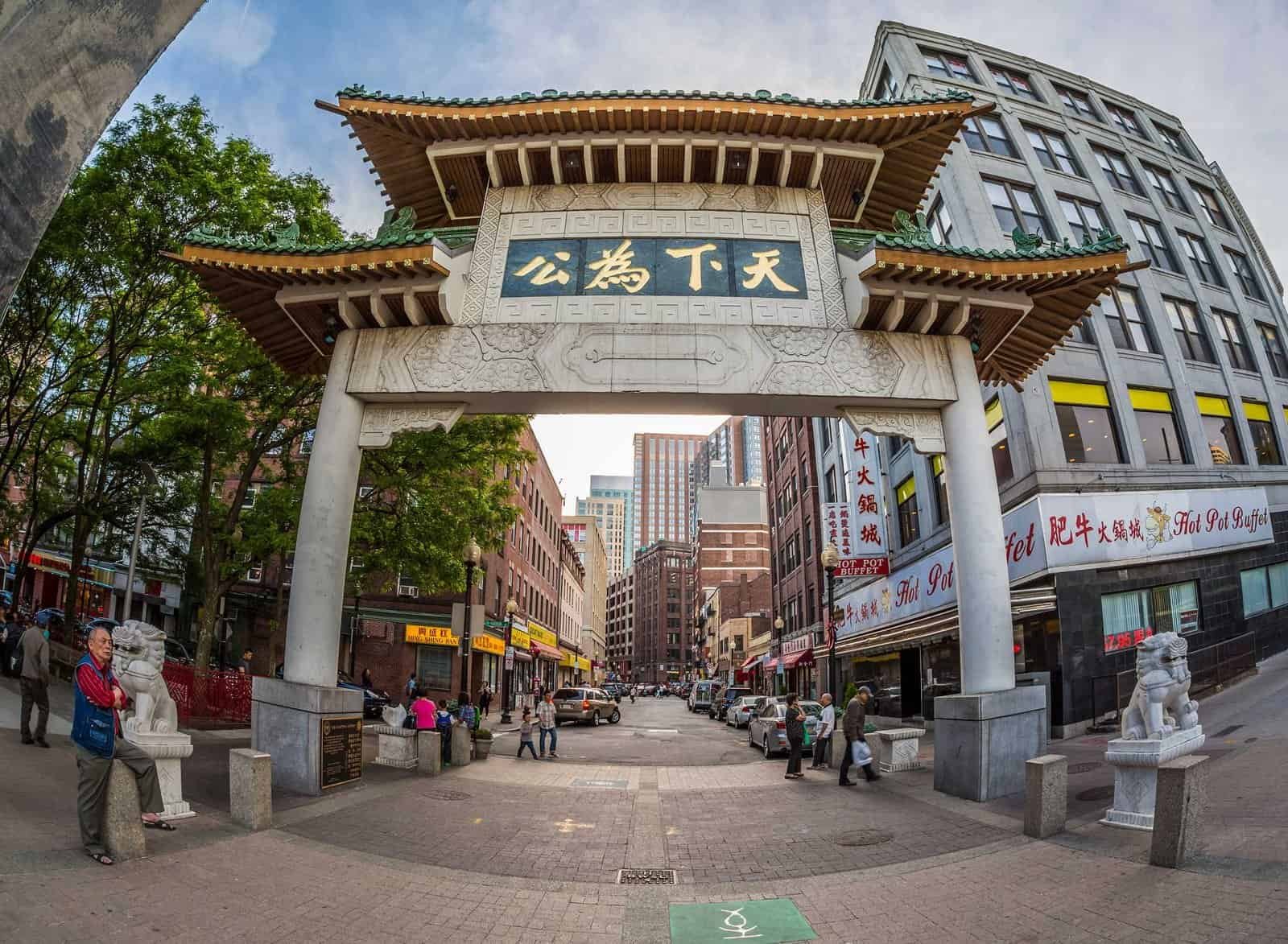Chinatown – Boston, Massachusetts
Overview
Boston’s Chinatown is one of the city’s most vibrant and culturally rich neighborhoods, blending history, tradition, and modern energy in the heart of downtown. Established in the late 19th century by Chinese immigrants, it remains the third-largest Chinatown in the United States. Today, visitors come for its authentic cuisine, bustling markets, cultural festivals, and the striking Chinatown Gate that marks the entrance to the district. Located near Boston Common, the Theatre District, and South Station, Chinatown is a dynamic community where heritage and contemporary life intersect, making it a must-visit destination for food lovers and culture seekers alike.
Why Visit
- Walk through the iconic Chinatown Gate, a symbol of friendship gifted by Taiwan in 1982
- Sample authentic dim sum, noodles, hot pot, and regional Chinese dishes
- Experience cultural festivals such as the Chinese New Year Lion Dance Parade
- Shop in Asian grocery stores, herbal medicine shops, and bakeries
- Enjoy the neighborhood’s proximity to Boston Common and the Theatre District
Highlights
- Chinatown Gate: A traditional paifang archway decorated with lions and Chinese calligraphy, welcoming visitors into the neighborhood
- Dim Sum Houses: Restaurants like Hei La Moon and China Pearl serve steaming dumplings, buns, and rolls in classic banquet halls
- Asian Bakeries: Shops selling egg tarts, mooncakes, and bubble tea line the streets
- Chinese New Year Festival: Colorful parades, lion dances, and firecrackers bring thousands of people to the neighborhood each winter
- Rose Kennedy Greenway: A nearby park offering public art, seasonal food trucks, and community events on Chinatown’s edge
History & Cultural Significance
Boston’s Chinatown was established in the 1890s, when Chinese immigrants settled in the South Cove area after working on railroads and in laundries. Despite facing discrimination, the community grew into a hub of cultural identity, resilience, and entrepreneurship. Over the decades, Chinatown expanded into a thriving neighborhood filled with restaurants, markets, temples, and social organizations. Today, it serves as both a cultural home for Asian Americans in Boston and a destination for visitors seeking authentic experiences. Its history reflects the broader story of immigrant perseverance and cultural contribution to the fabric of the city.
Typical Costs & Tickets
There is no cost to explore Chinatown itself, as it’s a public neighborhood. Meals are generally affordable, with dim sum and casual lunches ranging from $15–$25 per person, while larger dinners or hot pot experiences cost around $25–$50 per person. Bubble tea and bakery treats usually cost $5–$10. Special events like the Chinese New Year parade are free to attend, though parking in downtown Boston can be expensive—typically $20–$40 per day. Walking tours of Chinatown with local guides are available from $30–$50 per person and provide deeper cultural and historical context.
Best Time to Visit
Chinatown can be visited year-round, but it’s especially lively during the Chinese New Year celebrations in January or February, when the streets fill with parades and lion dances. Summer months bring food festivals and outdoor events on the nearby Rose Kennedy Greenway. Evenings and weekends are the busiest times for dining, while weekday mornings offer a quieter look at neighborhood life. Autumn is also a wonderful season to visit, with cooler weather ideal for walking the nearby Freedom Trail before stopping in Chinatown for a meal.
Nearby Experiences
Boston’s Chinatown is centrally located, making it easy to combine with nearby attractions. Just a short walk away is the Boston Common, America’s oldest public park, and the start of the Freedom Trail. The Theatre District borders Chinatown, offering Broadway shows, comedy clubs, and nightlife. The bustling Downtown Crossing area provides shopping and dining, while the Boston Public Garden offers iconic swan boats and historic statues. South Station, Boston’s main transit hub, is also nearby, making Chinatown a convenient stop for travelers exploring the city.
Travel Tips
- Arrive hungry—dim sum, dumplings, and hot pot are Chinatown musts
- Consider a guided walking tour to learn about the history of Chinese immigration in Boston
- Parking is limited; take public transportation via the Orange Line (Chinatown Station) or Red Line (South Station)
- Visit during the day for food and shopping, or in the evening for a lively dining scene
- Check event calendars for festivals, especially around Chinese New Year
Fun Facts & Local Legends
- Boston’s Chinatown is the only surviving historic Chinatown in New England
- The Chinatown Gate was a gift from Taiwan and features inscriptions that translate to “A World Shared by All”
- The neighborhood has been a filming location for several movies, including The Departed
- Chinatown is famous for late-night dining, with some eateries open until 2 a.m.





